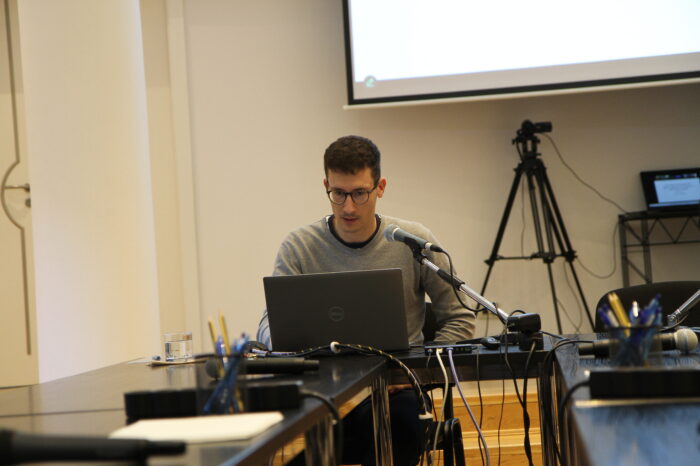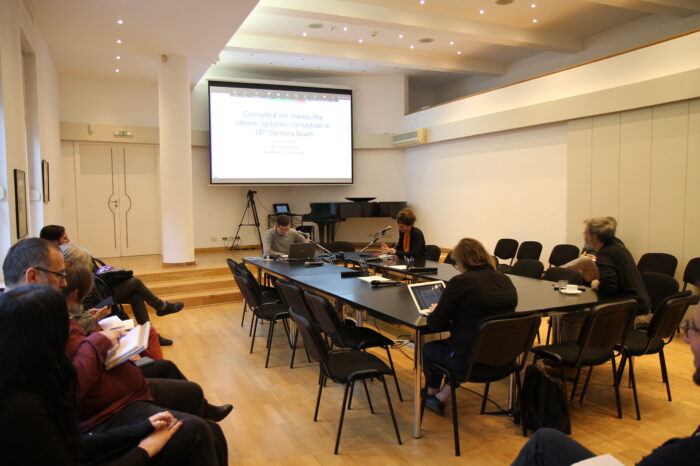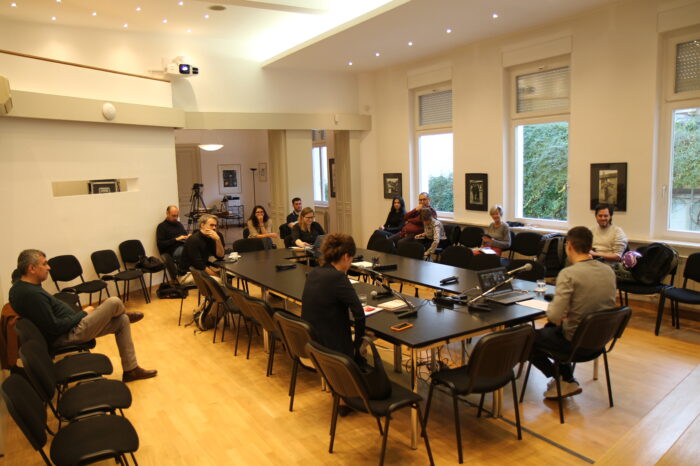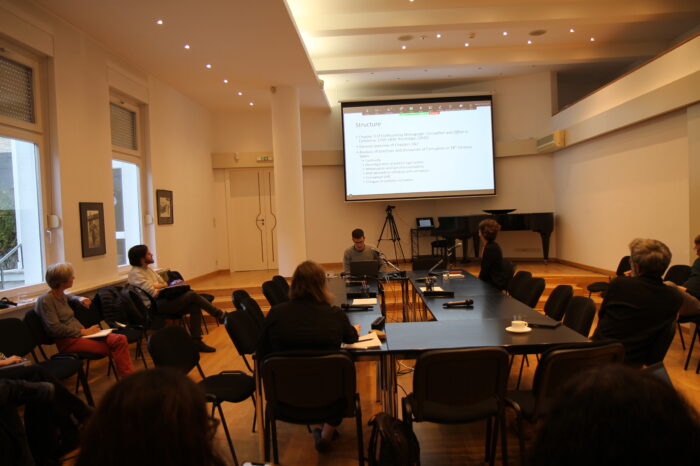Corrupted Are Always the Others: Systemic Corruption in Eighteenth Century Spain
Event: Research Group
Location: NEC conference room & Zoom
3 November 2025, 16.00-18.00 (Bucharest time)
Ricard TORRA-PRAT, Guest Researcher, Ludwig-Maximilians-Universität München; Postdoctoral Research Fellow, Universitat Autònoma de Barcelona
Join Zoom Meeting
https://us02web.zoom.us/j/86053564093?pwd=soarDcaeGTlulMIYP18BZtzjrtjKmj.1
Meeting ID: 860 5356 4093
Passcode: 197637
This presentation discusses the third chapter of my forthcoming monograph, Corruption and Office in Premodern Catalonia, 1350-1800, under contract with Routledge. While the first two chapters examine the emergence of the concept of corruption through the lens of late medieval legal culture –particularly the influence of Roman law– and trace how this concept was shaped within the political and legal traditions of early modern Catalonia during the sixteenth and seventeenth centuries, this third chapter turns to the eighteenth century, a period marked by the end of Catalonia’s distinctive institutional and legal order. Following the War of the Spanish Succession (1701–1715), Catalonia was incorporated into the new centralized Bourbon regime, which introduced a political system rooted in Castilian models and abolished many of the region’s historical institutions and offices.
Recent historical scholarship on corruption, especially within the so-called “new history of corruption,” has posed the question of when and why societies begin to invoke the idea of systemic corruption as a means of delegitimizing entire political systems (Bernsee 2013; Knights 2021). Traditionally, premodern societies addressed corruption by identifying and punishing individual wrongdoers –expelling “the rotten apples”– without challenging the legitimacy of the system as a whole. In contrast, the modern era saw the emergence of critiques that framed corruption as a systemic problem, targeting the foundational legitimacy of regimes such as the Ancien Régime or, in some contexts, newly established liberal states.
Drawing on new archival evidence from early eighteenth-century Catalonia, this chapter challenges the neat division between “premodern” and “modern” attitudes towards corruption.
*
This event is part of an ongoing series of public seminars organized under the ERC research project “Transnational histories of ‘corruption’ in Central-South-East Europe (1750-1850)” – TransCorr, hosted by New Europe College.



